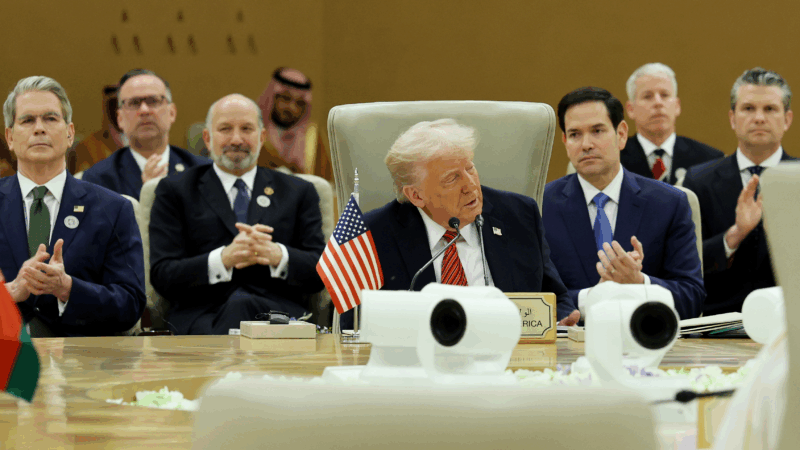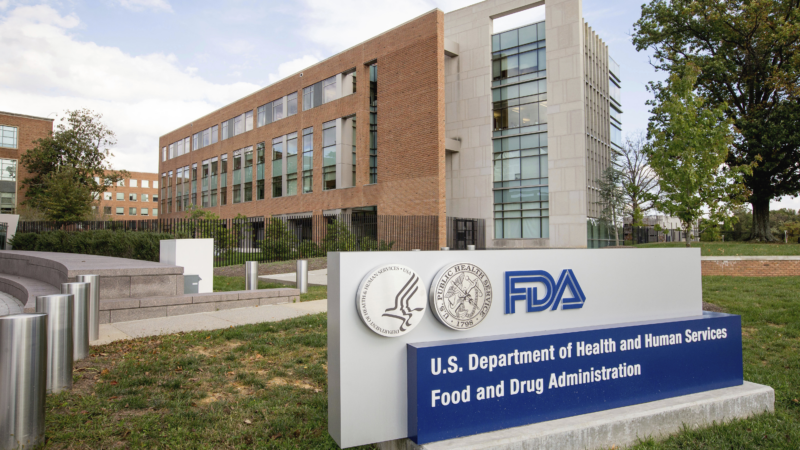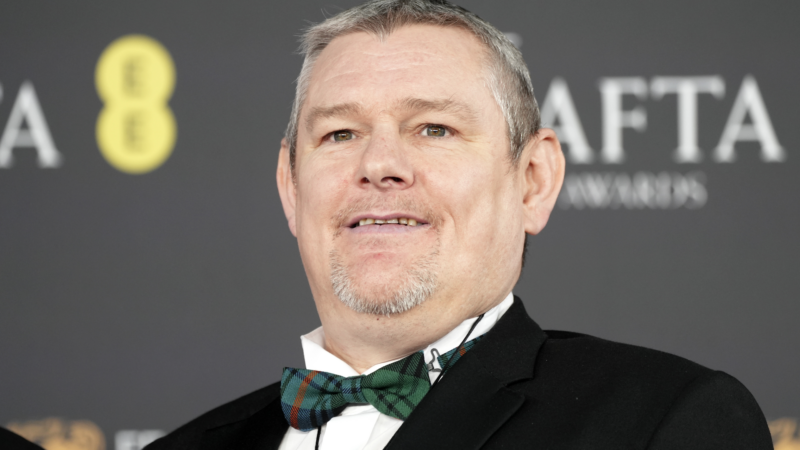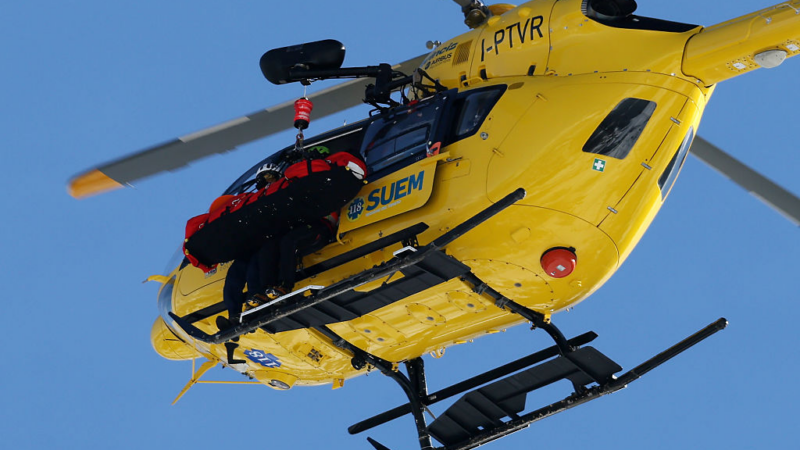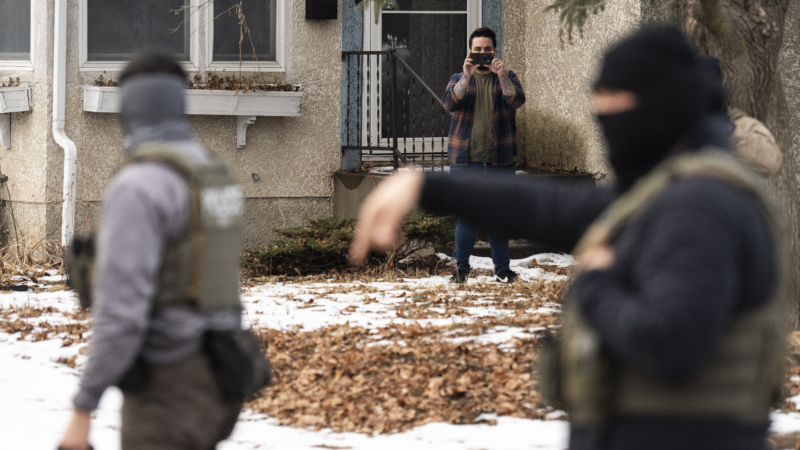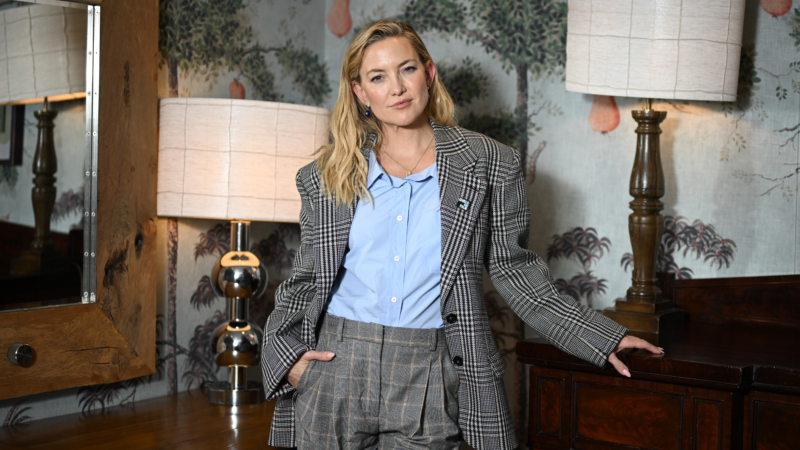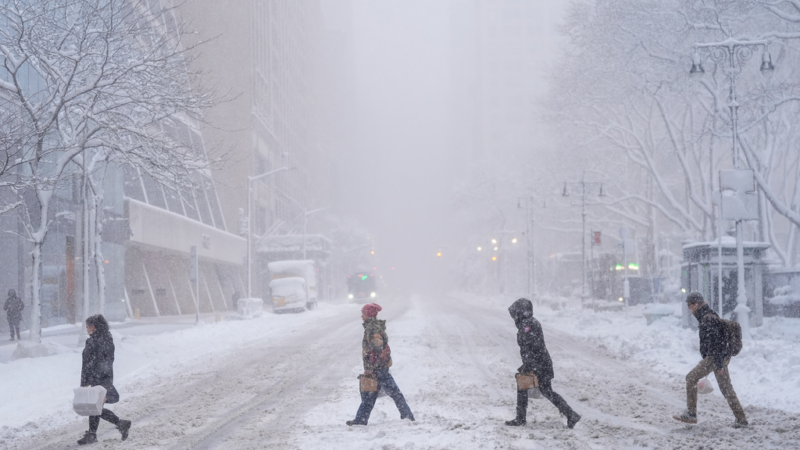Trump meets Syria’s interim president after pledging to lift sanctions
RIYADH, Saudi Arabia — President Trump met Wednesday with Syria’s interim President Ahmed al-Sharaa, spending about half an hour speaking with him on the sidelines of a visit to Saudi Arabia.
The meeting was added to Trump’s schedule as he announced he would lift U.S. sanctions against Syria, a move hailed by Syria’s foreign minister as “pivotal” to rebuilding a country devastated by more than a decade of civil war and international isolation.
“The sanctions were really crippling, very powerful,” Trump said in remarks to the Gulf Cooperation Council. He said lifting the sanctions would Syria “a chance for greatness.”
“It’s not going to be easy anyway. So it gives them a good, strong chance, and it was my honor to do so,” Trump said, noting that Saudi Crown Prince Mohammed bin Salman and Turkish President Recep Tayyip Erdoğan had asked him to remove sanctions.
Trump encouraged Sharaa to normalize relations with Israel by signing on to the Abraham Accords, and urged him to deter terrorism, White House press secretary Karoline Leavitt said on social media. The White House posted an image of the meeting, but reporters traveling with Trump were not allowed in the room.
The U.S. had slapped sanctions several times on Syria over the past 20 years, aimed at the regime of Bashar al-Assad, who had taken over the country following the death of his father, Hafez al-Assad. Hafez had ruled Syria for decades with an iron fist.
But the sanctions had remained in place after Assad fled the country in December in the wake of a surprise lightning campaign led by Sharaa and his coalition of rebel fighters. Sharaa was himself on the U.S. list of designated terrorists at the time for his past links to al-Qaida and Islamic State, but that designation was swiftly removed as Sharaa vowed to build an inclusive society with protection for all of Syria’s myriad ethnic and religious minorities.
The sanctions, however, remained in place as many countries were still wary of his past. A series of deadly clashes between factions loyal to Sharaa’s government and ethnic minorities raised fears that he may try to maintain his rule by force.
But Sharaa has shown himself to be an able diplomat, and has toured the Arab world and other nations trying to ease those fears and raise support for an end to sanctions and his efforts to rebuild the country. This month, he flew to Paris to meet President Emmanuel Macron, who has also called for an easing of sanctions.
Sharaa and those around him have even hinted at friendly ties with Israel, which has been carrying out a series of airstrikes inside Syria since the fall of the Assad regime, at first saying it wanted to avoid weapons falling into the hands of extremists, and then to protect the Druze minority who live on both sides of the Israel-Syria border, and who have fought clashes with Sunni factions allied with the new government. Israeli troops have also taken over positions along the border with the Israel-controlled Golan Heights that were once held by Syrian forces, a move Israel says is to protect its own territory.
Trump’s announcement Monday that he planned to lift the sanctions, which have starved Syria of desperately needed international investment, was met with prolonged applause at the Saudi investment forum where he was speaking, an accolade led by Saudi Crown Prince Mohammed bin Salman himself.
The sanctions had threatened to force Syria to seek financial support from Russia, which had allied itself with the former regime and whose war planes had bombed opposition-held cities. Moscow took in Assad and his family and still has two military bases inside Syria.
Gulf states are keen to invest in Syria, which has important mineral and oil reserves, but had been prevented from doing by the U.S. restrictions.
The FDA creates a quicker path for gene therapies
The Food and Drug Administration aims to evaluate treatments for rare diseases based on plausible evidence that they would work — without requiring a clinical trial first.
BAFTAs apologize after guest with Tourette syndrome uses racial slur during ceremony
A man with Tourette syndrome shouted a racial slur and other offensive remarks during the BAFTA awards ceremony Sunday. The BBC did not edit out his outbursts in its delayed broadcast.
‘Everything was in pieces:’ Lindsey Vonn describes grueling surgery on broken leg
In a recent video, the Olympic skier credits her surgeon with saving her leg from potential amputation.
A new lawsuit alleges DHS illegally tracked and intimidated observers
Observers watching federal immigration enforcement in Maine who were told by agents they were "domestic terrorists" and would be added to a "database" or "watchlist" are now part of a new federal class action lawsuit.
Kate Hudson on regret, rom-coms and finding a role that hits all the notes
Hudson always wanted to sing, but feared it would derail her acting career. Now she's up for an Oscar for her portrayal of a hairdresser who performs in a Neil Diamond tribute band in Song Sung Blue.
A powerful winter storm is roiling travel across the northeastern U.S.
Forecasters called travel conditions "extremely treacherous" and "nearly impossible" in areas hit hardest by the storm, and air and train traffic is at a standstill in many parts of the region.

